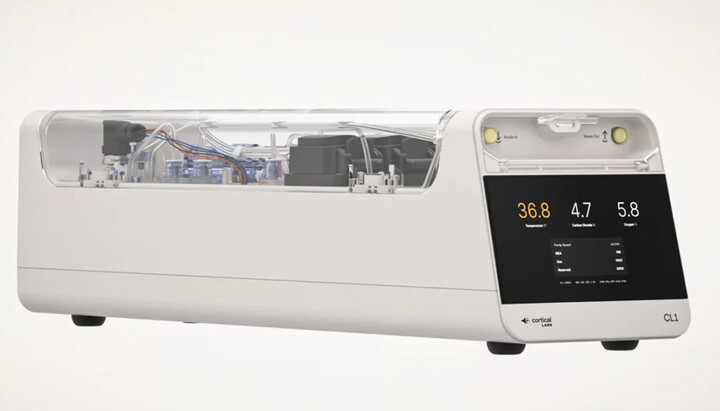The world's first computer based on human neurons goes on sale

An Australian company has merged human neurons and technology into a symbiotic device.
The Australian biotechnology company Cortical Labs has unveiled CL1 — the world’s first commercial biological computer that combines human neurons with silicon chips. The device, about the size of a shoebox, was officially released on March 2, 2025, and is already available for pre-order at around USD 35,000, with mass shipments set to begin in June of this year.
Cortical Labs' Chief Scientific Officer Brett Kagan claims that CL1 is powered by lab-grown neurons placed on a flat electrode grid. The lab-created piece of brain tissue is connected to 59 electrodes, which form a stable neural network. This is linked to a "life support unit" and a proprietary software system.
The system includes a cellular life support complex with waste filtration, temperature control, gas mixing, and circulation pumps. The computer will function for about six months, as long as the neurons remain alive.
However, the emergence of this technology has sparked serious ethical debates among scientists. While the CL1 system is much simpler than a human brain, it has caused discussions about the nature of consciousness and the potential for future biological AI systems to experience suffering.
Experts point out that although the neurons in CL1 are lab-grown and lack consciousness, their use in computation raises ethical concerns. At the same time, the creators of the technology assure that the systems are used in compliance with strict regulations and standards.
The technology promises significant advantages in energy efficiency compared to traditional artificial intelligence. While a silicon-based server might consume several megawatts of power, a single CL1 rack uses just 850 to 1000 watts.
As this field progresses, scientists urge the development of clear regulatory and ethical frameworks to govern the creation and use of artificial neural systems, especially as they become more complex and closer to mimicking the higher functions of the human brain.
Earlier, the UOJ reported that Elon Musk developed a neural chip that could help blind people regain their vision.











